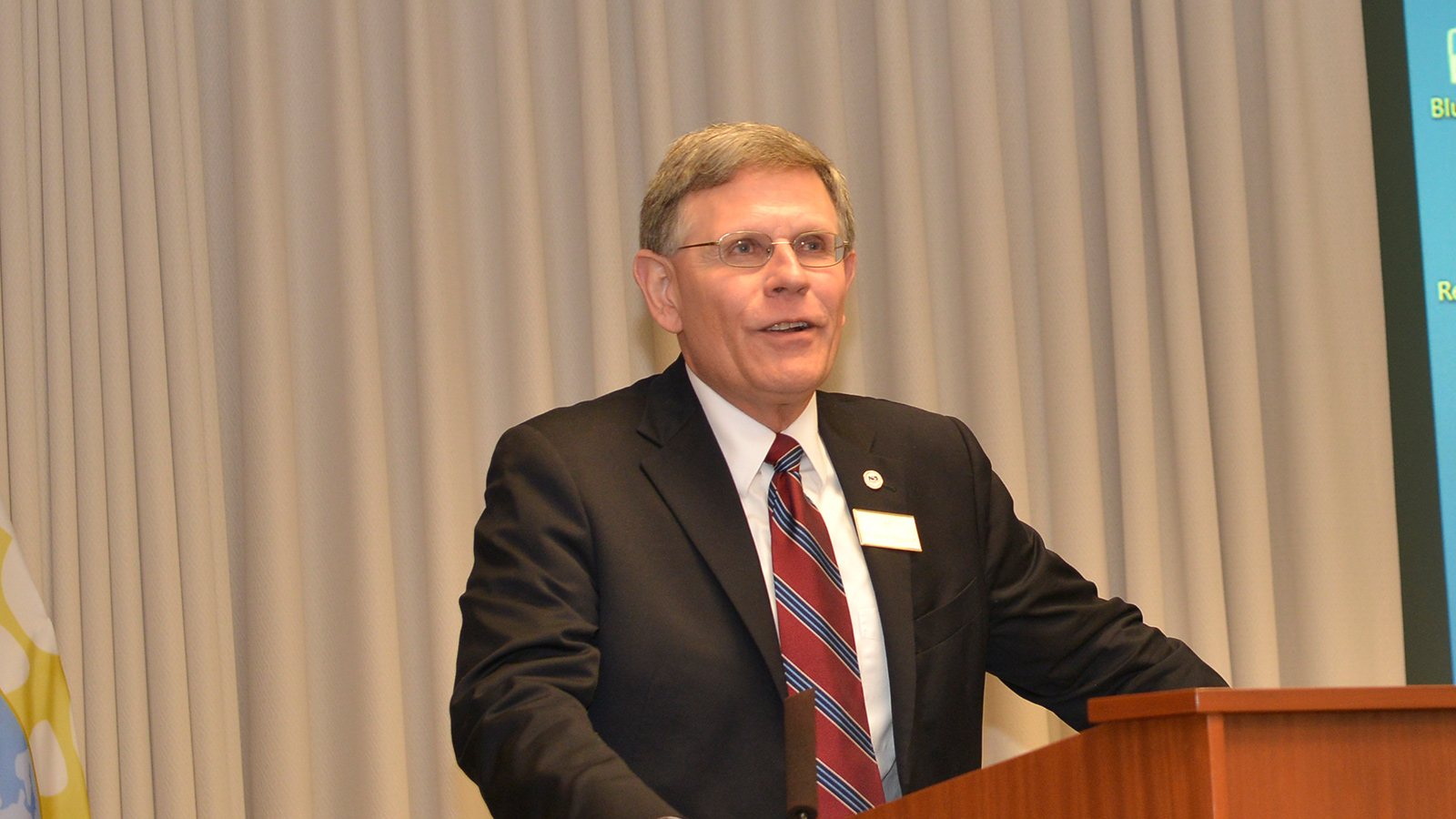Senators to question Trump’s nominees for science and space leadership
By Tom Risen|August 21, 2018
Committee will review meteorologist Kelvin Droegemeier for White House science adviser after the longest ever absence for that position.
The Trump administration’s nominee to direct the White House Office of Science and Technology Policy and the nominee for deputy NASA administrator each have Washington policy experience and varying levels of science and technology in their backgrounds.
Their nominations will be the subject of a Senate Commerce Science and Transportation Committee hearing on Thursday at 10:15 a.m. EDT.
Kelvin Droegemeier, 60, the OSTP nominee, spent decades as a severe weather forecaster predicting tornadoes and blizzards in Oklahoma. He stepped down Monday as vice president of research at the University of Oklahoma, and since 2017, he has been the top science adviser to Oklahoma Gov. Mary Fallin. Droegemeier co-founded the University of Oklahoma’s Center for Analysis and Prediction of Storms in Norman and was a member of the National Science Board during the George W. Bush and Obama administrations.
No administration since that of President Dwight Eisenhower has gone so long without an OSTP director or a chairman of the President’s Science Advisory Committee that preceded that office. Droegemeier would helm an OSTP that prioritizes weather prediction as necessary to protect the American people.
So far, Droegemeier’s nomination has drawn no fire from Senate Democrats who last year signed a joint statement criticizing Trump for his delay in filling that position, adding that nominees for science positions must be “respected experts with connections to the broader scientific and technology communities.” One of the signers was Sen. Bill Nelson of Florida, the senior Democrat on the Commerce, Science and Transportation Committee that will question both nominees.
Droegemeier knows NASA Administrator Jim Bridenstine from Bridenstine’s years as a congressman from Oklahoma. Weather prediction has been an important policy issue for Bridenstine, whose home state reportedly experienced an average of 54 tornadoes per year from 1950 through 2010 that claimed 281 lives. Droegemeier advised Bridenstine during the drafting of the Weather Research and Forecasting Innovation Act of 2017 that Bridenstine co-sponsored. President Donald Trump signed that bill into law last year.
For the NASA deputy administrator, Trump last month nominated James Morhard, 62, the deputy sergeant-at-arms in the Senate. In that role he coordinates security and manages the staff who provide senators with software and equipment. Morhard also was staff director for the Senate Appropriations Committee from 2003 to 2005.
A questionnaire Morhard filled out for the committee gives some insight into his goals for NASA. He wrote that his experience working with people of “diverse and often opposing views” would help him encourage projects between NASA and “traditional and new space companies, as well as our international partners.”
Morhard also wrote that his congressional experience gives him familiarity with the federal budget, adding “NASA must recognize that our national space acquisition process is outdated and inefficient.”
“Many of these programs cost too much, take too long and underperform,” he said, vowing to do his part “to radically reduce cost,” if confirmed.
Morhard’s nomination came as something of a surprise. Bridenstine said in June that Janet Kavandi, the director of NASA’s Glenn Research Center and a former astronaut, was his preference for a deputy.
“We need a space professional, we need a scientist, we need somebody who has been involved at NASA for a very long time,” he told members of the FAA’S Commercial Space Transportation Advisory Committee at the time.
Regarding Morhard’s nomination for the NASA post, Bridenstine’s office said he “is happy to see the Senate moving forward with the nomination process.”






